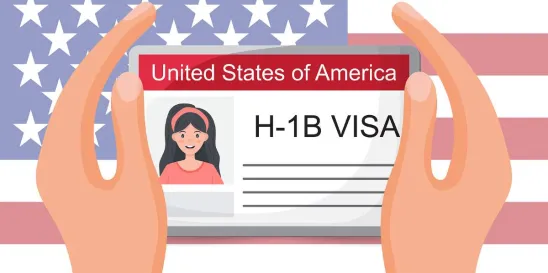USCIS has published a proposed rule that, once implemented, would significantly reform and modernize the H-1B Program. The Modernizing H-1B Requirements, Providing Flexibility in the F-1 Program, and Program Improvements Affecting Other Nonimmigrant Workers Rule has been released for Notice and Comment by the Department of Homeland Security (DHS).
The stated purpose is to streamline the H-1B process, provide greater benefits and flexibility for petitioners and beneficiaries, and improve the integrity of the Cap H-1B program. The comment period will run until December 22, 2023. At the end of the comment period, DHS will review all comments and publish the final rule.
The rule seeks to reform the following aspects of the H-1B Program:
- The H-1B Cap;
- Definitions in the H-1B Program; and
- H-1B and Other I-129 Filings.
1. Changes to the H-1B Cap/Lottery
DHS reports that in fiscal year (FY) 2021, there were 700 beneficiaries with at least five online Cap H-1B registrations and there was one beneficiary with 18. Two years later, in FY 2023, the numbers were significantly higher: 9,155 beneficiaries with at least five registrations and one beneficiary had over 83 registrations. Due to concerns about fraud and abuse in the H-1B lottery registration, DHS is proposing the following changes to address the issue of multiple cap registrations:
- Registrations will be selected by unique beneficiaries, NOT by unique registrations. Beneficiaries may have registrations submitted by more than one petitioner for bona fide job openings but, regardless of the number of registrations, the beneficiary will be entered into the lottery only once. After being selected, each petitioner who submitted a registration for that beneficiary will be notified. This likely will give beneficiaries more ability to negotiate with employers about which job to accept. According to the proposed rule, this would not prevent the filing of legitimate concurrent H-1B petitions.
- Related entities will be prohibited from submitting multiple registrations for the same beneficiary.
- The rule would codify DHS’ ability to deny or revoke petitions where there was a false attestation regarding the bona fide job opening and clarify that the DHS can request contracts or other evidence to prove a position is not speculative.
- DHS will require that all beneficiary registrants have a valid passport to make it easier for the agency to identify duplicate registrations. Beneficiaries with dual citizenship must use only one for registrations.
- Petitioners must have a legal presence and be amenable to service of process in the United
States. - DHS specifically noted that the changes to the Cap H-1B lottery might need to be postponed if the agency does not have enough time to implement the necessary changes.
To deal with delays in Cap adjudications and gaps in work authorization, DHS would:
- Extend Cap Gap for qualified students in F status until April 1 of the FY or until the start date of approved H-1B petition, whichever is earlier; and
- Permit Cap H start dates after October 1 if the case is not filed more than six months before the proposed start date of the petition.
2. Clarification of H-1B Definitions
Here, DHS is attempting to clarify definitions and consolidate all its guidance in one place. The rule would:
- Revise the definition of “specialty occupation” to clarify that, if a position “normally” requires a certain degree, it does not mean the occupation “always” requires that degree.
- Clarify that jobs may require a range of degrees if all the required degrees are directly related to the position and skills.
- Expand the definition of “nonprofit research organization” and “government research organization” for H-1B Cap Exemption purposes by explaining that research must be a “fundamental activity” of the organization and not necessarily its “primary mission.” DHS would also revise the beneficiary’s requirements. They need only provide “essential work” even if the duties of the position do not directly further the organizations “essential purpose.”
- Help entrepreneurs by allowing company owners in some circumstances may be eligible for H-1Bs.
- Consolidate all the guidance on whether a move or a short-term placement requires an amended filing.
- Clarify that “quantitative degrees” generally will not support an H-1B petition unless there is some specialization. For example, DHS notes that a general business degree alone would not support an H-1B petition for a marketing position, and a general engineering degree would not support a petition for a software developer position. In addition, requiring degrees as a proxy for a generic set of skills would not support an H-1B unless the petitioner can show an established past practice.
3. Changes That Affect H-1B and Other I-129 Filings
The rule would:
- Clarify that if there is no material change, USCIS should defer to prior approvals.
- Expressly require inclusion of maintenance of status documentation for all extensions and amendments.
- Allow the amendment of validity periods where the validity period expires before petition adjudication.
- Codify USCIS’ authority to conduct site visits and clarify that refusal to comply with site visits may result in denial or revocation.






 />i
/>i


